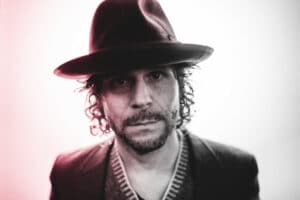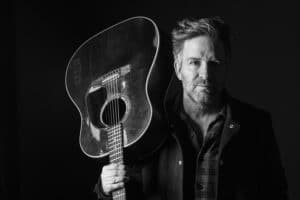DevilDriver’s Dez Fafara: ‘I had to show people who follow me the proper way to do life’
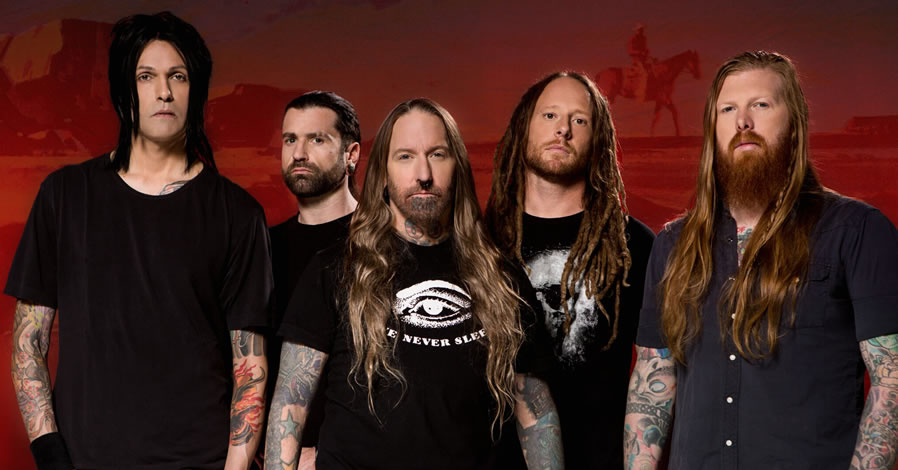
DevilDriver is Diego Ibarra (from left), Austin D'Amond, Dez Fafara, Mike Spreitzer and Neal Tiemann. (Courtesy of Ben Hoffman)
DevilDriver's Dez Fafara: 'I had to show people who follow me the proper way to do life'
Dez Fafara cuts a menacing figure when he’s on stage with the metal band DevilDriver, prowling the stage like a panther and delivering vocals that sound somewhere between an F250 in a car crusher and the swinging hinges of the doorway to hell.

“I think I was just a casual drinker, like everybody in America — ‘Hey, let’s party on the weekends!,’ at least at first,” he says during a recent phone interview, pausing on occasion to scold his two dogs who bark at something in his backyard. “But then I realized, I was doing it for 25 years, and I’d started having three cocktails a day, and I was looking at 280 days on the road. I was watching the bottles of vodka coming in and off the bus, coming in empty and leaving full. And when I hit 50, I said to myself, ‘How far do you want to go?’
“I wasn’t waking up in the gutter; I wasn’t beating my wife. I just had a feeling that I had to show people who follow me the proper way to do life. I was already vegan, and I had gotten into that for the health aspects as well, and alcohol will kill you faster than anything. It’s pushed in our society, it’s on every commercial; we’re constantly being told you can’t have a Saturday without a drink, you can’t watch the Super Bowl without a drink. And I decided I didn’t want that anymore.”
Brutality abounds
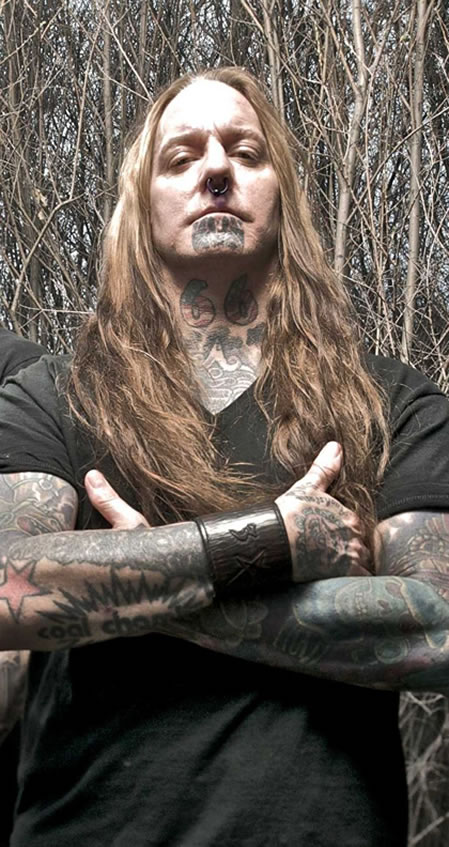
But he never once thought of those traumas as a reason to get wasted, he added.
“I think there are two kinds of addicts — the ones who start out thinking, ‘Hey, I’m bored and everybody’s partying, so let’s have some drinks, smoke some joints, do some heroin,’” he said. “Or, they feel, ‘My life is so miserable, I’ve got to get rid of this feeling.’ I was never really either of those. I take my life as it comes, and I’ve had a very hard life. I had to leave home at a very young age; I was a runaway; I stole food and slept under bridges and went to jail. But those things never made me use, and using never made me do those things.”
When he parents fought, Fafara used to listen to music; it became a lifelong obsession, and he was working as a bricklayer when his first band, Coal Chamber, signed a major label contract. DevilDriver got its start in 2002 as Coal Chamber was on the verge of flaming out; jam sessions with previous members eventually led to the formation of the band, which released a debut album on Roadrunner Records in 2003.
Subsequent releases built on that success; “The Fury of Our Maker’s Hand” debuted at No. 1 on the Billboard Top Heatseekers chart and earned the band widespread critical acclaim; additional albums followed, up to and including 2016’s “Trust no One,” which charted at No. 43 on the Billboard Hot 200. Next month, the guys will release “Outlaws ’Til the End Vol. 1,” a metal version of honky-tonk and traditional country covers that includes guest appearances by everyone from John Carter Cash to Hank Williams III to Lamb of God’s Randy Blythe.
“I always heard these songs heavy; I always imagined them being done ferocious,” he said. “The lyrics are the most poignant in country; they’re the most real and down-to-earth that you can get, and it’s something I’ve always wanted to do, but I’m not one who likes to tread over ground that’s been walked on.”
The end result is a fresh and brutal take on everything from Steve Earle’s “Copperhead Road” to George Jones’ “If Drinking Don’t Kill Me (Her Memory Will),” all of them put through the DevilDriver blender: supercharged with a primal, frenetic energy that sounds most post-apocalyptic than post-modern country. It’s meant to be a placeholder until the next DevilDriver studio album, which is shaping up to be a double concept record, two firsts for Fafara.
“We’re working on something extremely … special, and we’re using some secret weapons we found making ‘Outlaws,’” he said. “We discovered that lap pedal steel absolutely works with heavy metal, and that Neal (Tiemann, the band’s guitarist) has an incredible voice, so we’re going to sing together. We’re going to be using a lot of that different stuff on the next record, and I think all the fans of my past or present, from Coal Chamber to DevilDriver, are going to love it.”
‘Personal Positive Thoughts’
Apart from his music, Fafara posts regular Instagram videos under the title “Personal Positive Thoughts With Dez,” in which he provides uplifting motivations on a regular basis to almost 5,000 followers.
“I’m trying to give people positive thoughts for the day,” he said. “When people want to talk about their problems, a lot of them want to talk about addiction, and how it’s controlling their lives. I tell people to control themselves — to get up at 7 in the morning, to brush their teeth, to shower. They need to give themselves a daily routine, because drugs and alcohol have made them fall out of one.”
His method is unorthodox by conventional 12 Step standards, but he doesn’t knock those approaches to sobriety, he added. He simply believes in the power of positive thinking, and feels a great many addicts and alcoholics can summon within themselves the willingness to get clean and stay clean. The mind and spirit of the individual, he said, are powerful forces that he feels can be tapped for the sake of recovery.
“I have all of these people coming up to me and saying, ‘I’m eight days sober! I’m 1,000 days sober!’ And I tell them, ‘Quit counting!’” he said. “Any way you get sober is great. Find God, find a 12 Step program, but most of all, find yourself. If you look at your cat one day, and your cat helps you get sober, then get sober! But by all means, know that you can do it. Your mind is stronger than the person across from you, telling you that you’re strong! You’ve got to go inside your own head to beat it!”
He is not, he emphasized, advocating sobriety without assistance. In some cases — severe alcoholism or benzodiazepine addiction in particular — medical help is needed, and treatment for addiction and sobriety, he acknowledged, has helped a great many addicts find the same sense of serenity he himself enjoys today.
‘Do it for your family, for yourself, for your own life’
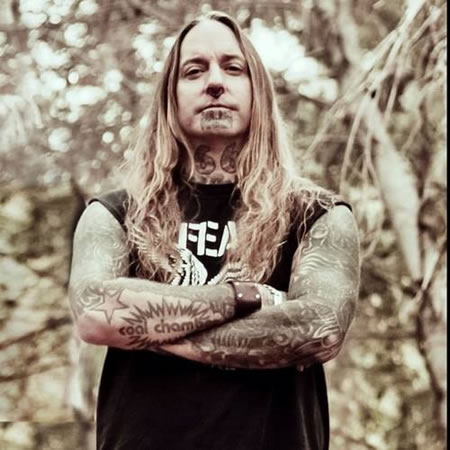
“For me, it’s about listening to your heart, to your soul,” he said. “You know that whatever you’re doing to your life is either good or bad, and you’ve got to get on with the good. Seek counseling if you need it, go to God if you need it — whatever you need to quit to come back to yourself. Do it for your family, for yourself, for your own life.
“In my world, I live on tour buses and airplanes and back stages. Alcohol is all around me, and I don’t even feel the urge, not one bit, because my mind is stronger. And that’s what I want to encourage in other people: Go to yourself first. In order to go to your God or your 12 Step program, you’ve got to be ready to go for it.”
It isn’t easy, but Fafara has never been one to opt for the easier, softer way. When he quit drinking, he was in the middle of a tour, with bottles of booze scattered throughout the band’s bus. He didn’t issue an edict that everyone else in the band had to get sober; he simply made a decision, and by choosing to stay sober every day thereafter, he emerged on the other side with an unparalleled sense of accomplishment, he said.
“We’re all very powerful, shiny beings, and it is a difficult process — but you need to go through it, and you need to come out the other side,” he said. “And once they get on the other side, it’s beautiful. I was the guy who would get up and have a beer every morning, but now, I feel so much better without it. I feel the light shining on my face every morning.”
Check Out These Other Artists' Stories

